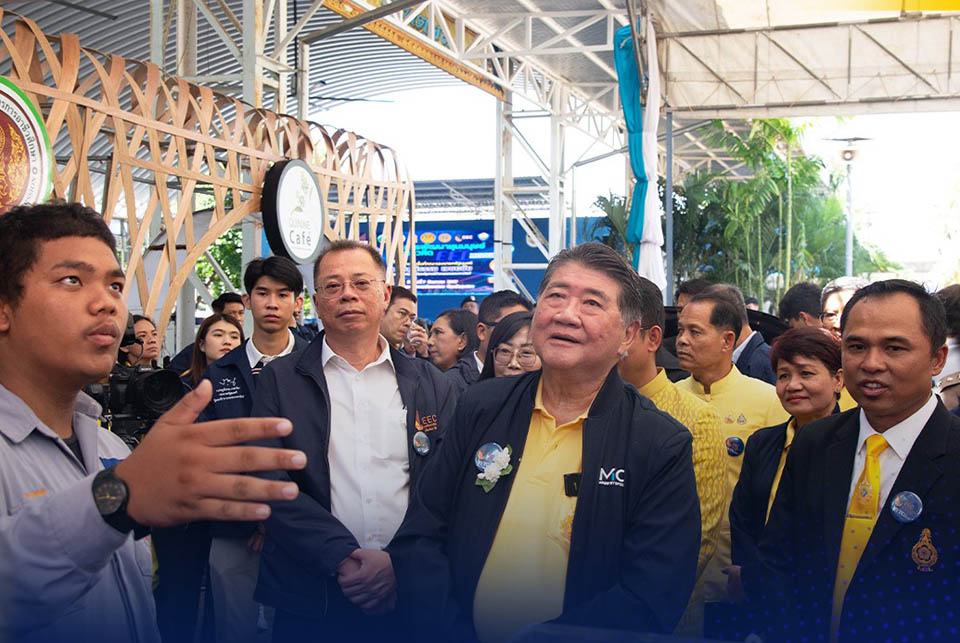
A delegation led by the Deputy Prime Minister and Minister of Commerce, Phumtham Wechayachai, visited Rayong and Chonburi to oversee key projects under the Eastern Economic Corridor (EEC) initiative.
The visit aimed to monitor progress and ensure the region’s readiness for high-tech industry investments. Dr. Chula Sukmanop, Secretary General of the EEC Policy Committee, provided a progress update, assuring investors of the EEC’s potential.
The delegation visited Rayong Technical College, which plays a crucial role in the EEC Model for human capital development. This model aligns vocational training with industry needs, enhancing skills to meet the demands of modern education and creating a workforce ready for targeted industries. The EEC collaborates with educational institutions, government agencies, the private sector, and industries to provide opportunities for Thai youth to gain relevant skills and secure well-paying jobs.
The team also explored the RYTC Market, an initiative fostering young entrepreneurs by integrating business learning with practical experience. They reviewed innovations and technologies developed by students and participated in a forum on human capital development under the EEC model. Representatives from vocational education, the private sector, provincial industry councils, and students discussed ways to enhance workforce skills to support EEC investments.
Phumtham emphasized the importance of the EEC human capital development project in preparing skilled workers for targeted industries within the EEC area. Rayong Technical College serves as a model institution, offering programs that equip students with advanced skills to meet future industrial investment needs, guaranteeing job opportunities and promising prospects for young people.
The EEC Model comprises two main types. Type A offers a degree or vocational certificate program developed in collaboration with businesses. It provides free education, job placements, and high salaries supported by private sector scholarships. Type B involves short-term training to quickly enhance or upgrade skills, with government subsidies covering up to 50% and tax incentives for businesses supporting this training.
The EEC and related agencies aim to train approximately 102,500 individuals under the Demand Driven approach, with more than 300 accredited training courses in advanced science, technology, and engineering. The EEC also supports 13 specialized industry centers, such as Automation & Robotics, Aviation & Logistics, and New Generation Automotive. (NNT)








